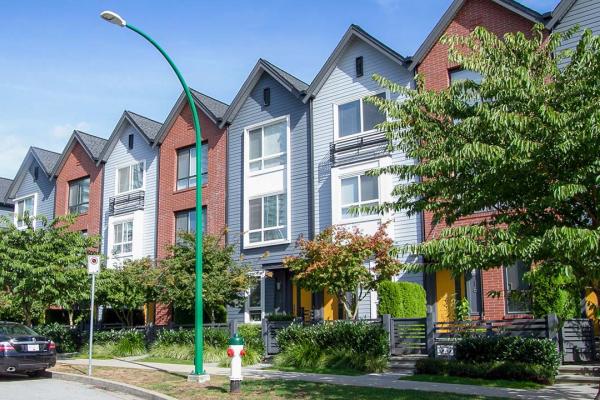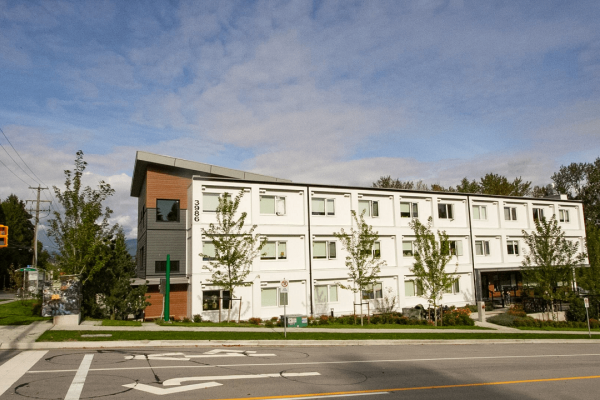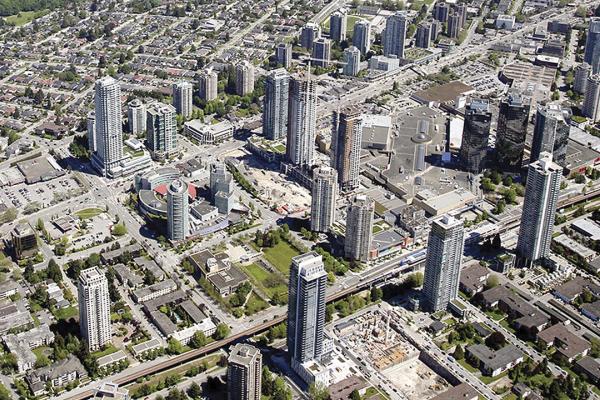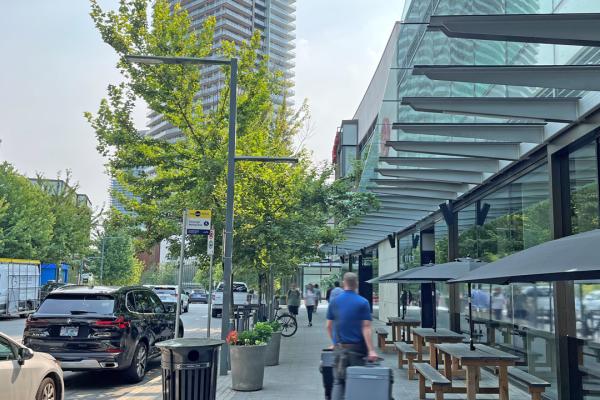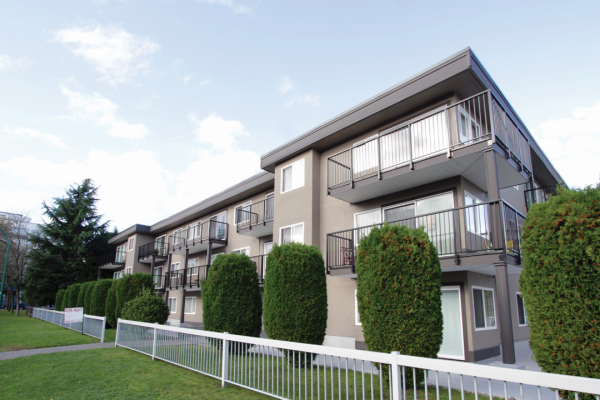A comprehensive approach to housing
Housing is a key element of a sustainable community. Burnaby supports a range of housing opportunities through its regulatory powers, which help determine the location and type of housing that can be built in the city, and through policies and programs that encourage development of affordable and special needs housing. Burnaby advocates to senior levels of government on housing issues, and works with government, non-profit and private sector partners to deliver more housing.
There are four main pillars to Burnaby’s Housing Program:
1. Growth management and development
Burnaby regulates the location and type of housing that can be built in the city, within a framework that encourages housing choice.
- Official Community Plan sets out the residential framework for growth.
- Regional Context Statements supports accommodating regional growth.
- Burnaby Zoning Bylaw regulates all types of development, including housing.
- Timely, efficient and transparent City development and building permit review process.
2. Policies
Burnaby supports the provision of affordable and special needs housing through specific policy initiatives.
This policy enables the City to secure affordable and/or special needs housing units in conjunction with private developments as well as accept cash contributions-in-lieu for future affordable and/or special needs housing development. In addition, housing fund grants have been provided to reduce the costs of community sponsored housing initiatives.
This policy applies to newly developing communities on publicly-owned land, and seeks to secure 20% of the new units for non-market rental housing. To date, the program has resulted in the development of 390 non-market housing units at Oaklands, George Derby, Cariboo Heights, and the former Burnaby South Secondary School site in the Edmonds Town Centre.
This policy allows for the deferral of certain City development cost charges and permit fees for non-market housing projects for a period of up to 24 months starting from final development approval. This policy helps defer costs early in the development schedule, during the difficult period prior to the generation of cash flow.
This policy prioritizes processing applications for non-market housing during the development application review process.
This policy prohibits strata conversion of purpose-built multiple-family rental housing. Active since 1974, this policy has helped to preserve much of the purpose-built rental housing stock that was built with federal subsidies between the 1950s and 1980s.
Effective August, 1, 2022, Burnaby residents may operate a short-term rental out of their principal residence if they meet specific criteria and obtain a business licence.
This policy helps protect tenants from displacement due to rezoning and is one of the most progressive in Canada. It requires rezoning applicants to help eligible tenants find a new place to rent and provide financial support to help offset higher rent costs, as well as the costs of moving. Tenants also have the option to return to a rental unit at the rezoned site, at the same rent they were paying, once the project is complete.
This policy applies to multi-family buildings with 5 or more purpose-built rental units that are renovating or redeveloping to the extent that tenants will be displaced and rezoning is required. Meeting requirements of the Tenant Assistance Policy is a condition of rezoning approval for all qualifying redevelopment proposals.
Adaptable housing is designed and built so that accessibility features can be added more easily and inexpensively after construction to accommodate the changing accessibility requirements of residents over time. Burnaby requires adaptable design in new multi-family residential developments that are approved through the Comprehensive Development (CD) rezoning process. For most developments, at least 20% of single-level units must meet the provincial adaptable design standards; for purpose-built seniors housing, this percentage increases to 100%. As an incentive, the Burnaby Zoning Bylaw provides a 1.85 sq. m (approximately 20 sq. ft.) floor area exemption for every adaptable housing unit.
The Burnaby Zoning Bylaw permits secondary suites in multiple family dwelling units in the P11 zone at UniverCity, a new urban village located adjacent to Simon Fraser University (SFU). Sometimes known as “lock-off units,” these suites provide affordable housing for both university students and others wishing to live near campus.
This policy supports community-based residential opportunities for citizens with special needs while ensuring group homes are developed in a planned, balanced manner with adequate support systems.
The Rental Use Zoning Policy provides more rental units, including non-market rental units, which provide rental options for low and moderate income households. The implementation framework has been designed to secure a long-term rental stock for the residents of Burnaby.
This policy creates opportunities for new rental housing in Burnaby, and protects existing rental housing, by implementing rental use zones with specific rental requirements and incentives.
3. Programs
Burnaby implements programs that provide more affordable housing options, as well as enhanced supporting infrastructure.
Burnaby leases land that it owns to non-profit societies and housing corporations to build non-market housing providing opportunities to achieve affordable housing. The City offers these leases at reduced or nominal rates, offsetting leasing costs through contributions from the Community Benefit Bonus Housing Fund.
The Housing Accelerator Fund (HAF), launched by the federal government on March 17, 2023, is a $4 billion program administered by the Canada Mortgage and Housing Corporation (CMHC) to encourage local governments to accelerate new housing supply. The fund incentivizes improvements in land use planning and development approvals to increase housing supply, range of housing, affordability, speed up approvals, and enhance supporting infrastructure. The City of Burnaby has been awarded up to $43.4 million to implement a 10-point action plan, aiming to deliver 11,000 housing units by the end of 2026.
Achieving affordable and special needs housing through the Community Benefit Bonus Policy.
A secondary suite is an accessory dwelling unit fully contained within a single-family primary unit of a single-family home, duplex, multiplex or rowhouse. They are valued by both homeowners and tenants as they provide affordable rental housing, a “mortgage helper” for property owners, and can facilitate aging in place.
All owners of single-family, duplex, multiplex or rowhouse dwellings are required to fill out a declaration indicating whether or not they are renting out their home or a suite on the property. This declaration does not need to be completed annually, however if there is a change in the rental status of the property, a new declaration must be submitted within 30 days of the change.
4. Advocacy and partnerships
Burnaby advocates to senior levels of government and works with government, non-profit and private sector partners to encourage more housing. For example:
- Working with partners to develop non-market housing at 16 City-owned sites.
- Support of Metro Vancouver’s Regional Affordable Housing Strategy.
- Through Union of BC Municipalities / Federation of Canadian Municipalities, Burnaby lobbied for:
- zoning for rental housing
- development cost charges to replace affordable housing
- renewal of rent subsidies and supports for social housing and cooperatives
- support for local governments in the delivery of tenant assistance
- development of national and provincial housing strategies
